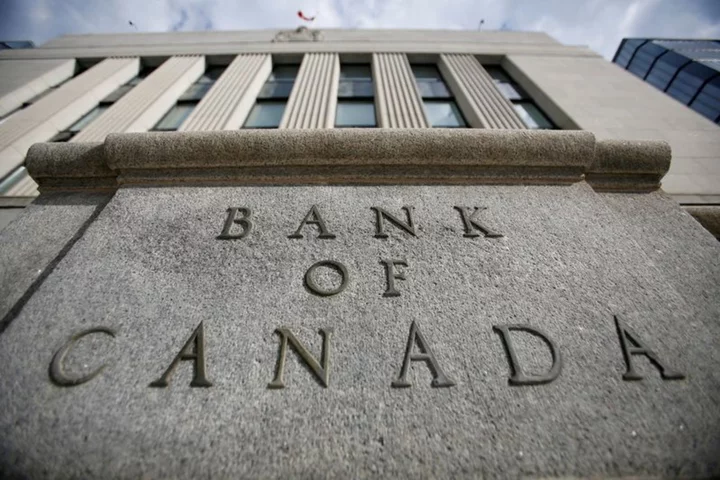By Steve Scherer and David Ljunggren
OTTAWA, June 8 Surprisingly strong household spending in the first quarter and stubbornly high core inflation were among the top reasons the Bank of Canada hiked rates after a four-month pause, a senior official said on Thursday.
Deputy Governor Paul Beaudry also warned consumers that in the future, interest rates were likely to remain higher than Canadians had been used to before the COVID-19 pandemic.
The Bank of Canada (BoC) on Wednesday hiked its overnight rate to a 22-year high of 4.75%, and markets and analysts forecast yet another increase next month after the policy announcement declared monetary policy was not sufficiently restrictive. The BoC has a 2% target for inflation.
Speaking to business executives in Vancouver in the BoC's first remarks since raising rates, Beaudry singled out unexpectedly strong household spending, a rebound in the housing market, a tight labor market, and sticky core inflation as the main factors behind the latest move.
"The bottom line is there appears to be more momentum in demand than we expected," Beaudry said. "We agreed the likelihood that total inflation could get stuck well above the 2% target has increased."
In the speech, Beaudry gave no hint of the BoC's thinking on its next meeting in July. Money markets see a 63% chance of another rate hike in July and have fully priced in further tightening by September.
The central bank had been on hold since January to assess the impact of previous hikes after raising borrowing costs eight times since March 2022 to a 15-year high of 4.50% - the fastest tightening cycle in the bank's history.
In April, annual inflation accelerated for the first time in 10 months, rising to 4.4%. First-quarter GDP rose 3.1% - versus the 2.3% forecast by the BoC - and in April the economy is seen expanding 0.2%.
Beaudry offered a closer look at the statistics, predicting headline inflation would ease in May and slow to 3% this summer, but he expressed concern about core inflation, which excludes recent declines in energy prices.
Core inflation measures "seem to have lost their downward momentum", he said.
Contrary to expectations, demand for services was sharply higher in the first quarter, and demand for goods jumped too, in particular for interest-rate sensitive goods like furniture and appliances, he said.
But he did say structural factors within the economy that had been keeping rates lower were shifting. For example, Canadians who had saved more as they approach retirement do not put as much money away when they stop working.
There is a greater risk of higher rates in the future, so "it's important to think ahead", Beaudry said, and "be better prepared in the eventuality that we have entered a new era of structurally higher interest rates".
(Reporting by Steve Scherer, editing by David Ljunggren)
((Reuters Ottawa bureau, david.ljunggren@tr.com))
Keywords: CANADA CENBANK/

